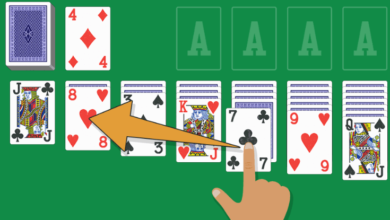
Ethical Loot: Responsible Gaming in a Digital World
As online gaming continues to grow in popularity, so too does the need for ethical considerations in the industry. From microtransactions and loot boxes to issues of online safety and well-being, the landscape of gaming raises questions about responsible practices. Ethical gaming encompasses not just the actions of players, but also the responsibilities of game developers and platform providers. Let’s explore the concept of ethical loot and responsible gaming in a digital world.
Microtransactions and In-Game Purchases
Microtransactions and in-game purchases have become a significant part of 메이저사이트 allowing players to acquire virtual goods such as skins, items, and other content. While these transactions can enhance gameplay, they also raise concerns about transparency, fairness, and the potential for exploitation.
The Ethics of Loot Boxes
Loot boxes, which contain randomized virtual items, have sparked controversy due to their resemblance to gambling. Critics argue that the lack of transparency and potential for addiction make loot boxes a problematic practice. Many countries have considered regulations to address these concerns.
Player Well-Being and Addiction
Responsible gaming includes addressing issues related to player well-being and potential addiction. Excessive gaming can lead to negative impacts on mental health and personal relationships. Developers and players must be aware of signs of addiction and take steps to promote healthy gaming habits.
Age-Appropriate Content and Ratings
Providing age-appropriate content and clear ratings is an essential part of responsible gaming. Games with mature themes or content should be clearly labeled to inform players and guardians. Adhering to established rating systems helps protect younger audiences from exposure to inappropriate material.
Privacy and Data Protection
Privacy and data protection are critical concerns in the 메이저사이트. Game developers and platforms must handle players’ personal information responsibly and transparently. Adhering to data protection laws and best practices helps build trust between players and developers.
Fair Play and Anti-Cheating Measures
Ethical gaming involves promoting fair play and implementing anti-cheating measures. Cheating can ruin the experience for other players and undermine the integrity of the game. Developers must actively work to detect and prevent cheating to maintain a level playing field.
Transparency in Game Mechanics
Transparency in game mechanics is crucial for ensuring ethical gaming practices. Players should understand how in-game systems such as loot boxes and progression work, allowing them to make informed decisions. Clear explanations help prevent misunderstandings and build trust.
Community Management and Safety
Effective community management is essential for creating a safe and respectful gaming environment. Developers and platform providers should have clear policies and moderation practices in place to address toxic behavior, harassment, and other issues.
Supporting Diverse Representation
Promoting diversity and inclusion in gaming is an important aspect of responsible gaming. Games should strive to represent a wide range of cultures, backgrounds, and identities in their characters and narratives. This approach fosters a more inclusive and welcoming gaming community.
Ethical Monetization Models
Developers must consider ethical monetization models that prioritize player experience and well-being. Practices such as pay-to-win mechanics can create imbalances and detract from the enjoyment of the game. Fair and transparent monetization strategies can enhance the gaming experience.
Player Education and Awareness
Educating players about responsible gaming practices is an important part of fostering an ethical gaming culture. Providing information about topics such as digital well-being, online safety, and ethical gaming choices helps players make informed decisions.
Accessibility and Inclusivity
Promoting accessibility and inclusivity in gaming ensures that all players can enjoy the experience, regardless of their abilities. Developers should strive to create games that accommodate a variety of needs and preferences, including customizable controls and visual options.
Balancing Entertainment and Ethics
Balancing entertainment and ethics is a challenge for game developers. While the primary goal is to create enjoyable games, ethical considerations should guide decisions regarding gameplay mechanics, monetization, and player interactions.
Regulation and Industry Standards
Regulation and industry standards play a crucial role in promoting ethical gaming practices. Organizations such as the Entertainment Software Rating Board (ESRB) and the International Game Developers Association (IGDA) provide guidelines for developers to follow, ensuring that games are developed and distributed responsibly.
The Future of Responsible Gaming
As the gaming industry continues to evolve, responsible gaming will become an increasingly important focus. Developers, players, and regulators must work together to create a gaming landscape that prioritizes ethical practices and player well-being. The future of responsible gaming will involve ongoing dialogue and collaboration to address emerging challenges.
Conclusion
Ethical loot and responsible gaming in a digital world encompass a wide range of considerations, from microtransactions and loot boxes to community management and player well-being. As the industry continues to grow and evolve, it is crucial for all stakeholders to prioritize ethical practices. By doing so, we can create a gaming landscape that is fair, inclusive, and enjoyable for players of all backgrounds and experiences. The journey towards responsible gaming requires ongoing effort and collaboration, but the rewards for the industry and its community are well worth it.




